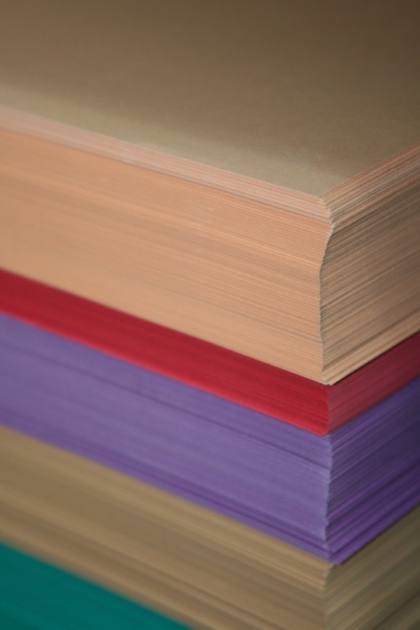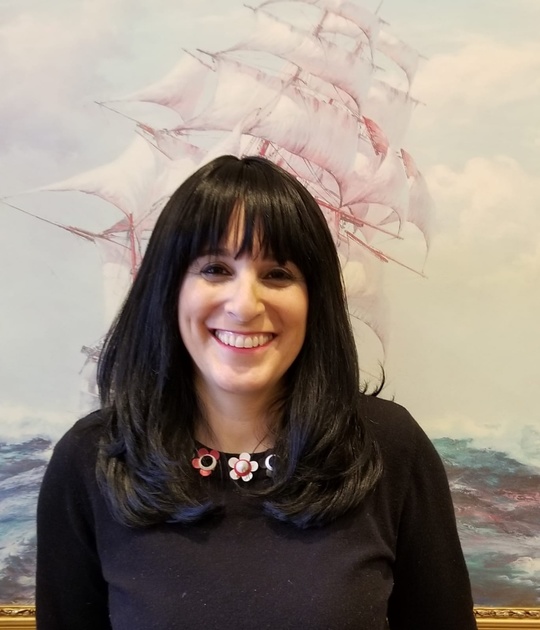
If you happen to be in Mrs. Sokol's house, and want to poke around, I will bet the letter I sent her over forty years is somewhere there still. And the note I left on her desk will be hanging in her kitchen. And if you tell her I send my regards, she will know exactly who I am, even if I write under a pseudonym.
Mrs. Sokol was my second grade teacher in Rabbi Balkany's school over forty years ago, in the building on 14th Avenue, that now belongs to Bobov. I can see the carpet in the entrance of the building, and the auditorium where we performed. I can smell the delicious newness of freshly sharpened pencils, wood desks, and the scent of a teacher who carries me in her heart as I do her.
If I can trace back the trajectory of my life's path to a single person who has influenced me to become the person I am today, although there were many important individuals, including my parents, it would be Mrs. Sokol who stands out in my memory.
I know, I know. You are thinking, “Please? A second grade teacher? Tell me another one!”
I do not know how many second graders Mrs. Sokol taught in her lifetime, but each and every one of her students who will read this article will say, “Of course. Mrs. Sokol.” No more words are necessary, just the mention of her name. As simple as that.
She created rock gardens with us, the miracle of crystals on a rock awe inspiring. She introduced us to the fascinating concept that a starfish can regrow a severed limb. She arranged our seats into two rows, informed us that we were now on an airplane, and took us on rides to exotic and distant countries.
No second in class was wasted. If I ever finished my work ahead of time, I was privileged to obtain a Leveled Book, where I could read and fill out pages to my hearts content. Somehow, that Ruchie Feder was always a leveled book ahead of me, wasn't a frustration but a motivation to work harder, to try my best.
She described her journey to become a teacher, filling our heads with the wonder of being a teacher; and promised us she would answer each letter during the summer. Her response to mine detailing her walks on the beach still leaves me with the taste and feel of saltwater and gritty sand in my mouth and nose.
I do not know her magic although she always seemed extraordinary to me.
Once, she read us a story about a family who traveled to find gold; and alongside that story ran a parallel story about the little girl who wished to learn how to read. At the end of the story, the family failed to find gold, but the little girl had learned to read.
Years later, when I was in college and needed to write one of the millions of papers I was required to do, I remembered this story. It was with a shock of electricity that I realized that somehow Mrs. Sokol had managed to convey to me, as a second grader listening to a story about the California Gold Rush, that a child learning to read, achieving an education was more potent and powerful than finding gold.
I realized that it was a message I carried with me from second grade on—that knowledge was wealth, and if I would be educated there was nothing I could not own.
And so, when I changed schools in third grade, my Hebrew teacher large and menacing, and my English teacher merely a babysitter as we ran wild, I was determined to learn. And in fourth grade, although it was clearly obvious that no matter how hard I tried, with my weak skills in math and memorization, I could never win my teacher's approval which was reserved only for Chana Rivka Spivak, I was dead set on learning. In that year, I finally became a reader, completing my first novel, The Scarlet Pimpernel.
In fifth grade, despite my science teacher's accusation that I had stolen the class' science tests—because she knew I would have done poorly—I still filled out the many science sheets in the hopes that I would one day understand—and the tests were found the last day of school when we cleaned out the teacher's cabinet, but she never apologized.
In fifth grade, I read voraciously, the power of my knowledge beginning to become a formidable weapon. When my teacher found me at recess with Exodus by Leon Uris, a sweeping saga of Zionism and Israel in the aftermath of the Holocaust, an adult novel, and called my mother to inform her of the inappropriateness of my reading material, my mother pretended she hadn't known and asked me to read these books only at home.
By the time sixth grade rolled around and I had morphed into a behavioral issue, I still studiously took notes, even as I created havoc in the classroom. I never cut class in high school, although I cried from boredom, the excruciating minutes crawling by, ignoring in my earnest note-taking the teacher who snarled at me, “Spoiled Hungarian brat!” choosing instead to learn what she was capable of teaching.
And it was possible because Mrs. Sokol had told me so.
And I knew she adored me as I adored her.
I saw her face light up when I rollerbladed into her house one Purim, and in her delight when I called her on the phone just to hear her voice. I never told her how much trouble I was causing in school, the heartache I was causing my parents, but basked in the knowledge that she thought I was wonderful. Because I knew she knew the truth. I just needed some years to find it.
So when in eighth grade, I labored over a composition about my love for Mrs. Sokol and my teacher marked it up with red, angry slashes because of grammar errors, calling it “putrid,” I felt her slap on one cheek, and Mrs. Sokol's kiss on the other and continued to write.
And I continued to learn.
When I informed my fellow classmates that Chinese girls had their feet bound, and they, disbelieving, asked my teacher if that was true and she said nonsense, she had never heard of such a thing, despite the pain at being ridiculed, I felt a tremendous surge of power that my store of knowledge had already surpassed my teacher's.
Mrs. Sokol continues to teach, as I do, although I have left the classroom itself some time ago, moving on to other paths and adventures.
Education is strength. There is nothing I cannot do or own or be with that power.
And I strive to pass on that strength, that knowledge to my own children, to students who once sat in my classroom, to clients who now sit in my office, to random audiences of nieces and nephews at the Shabbos table, and to passing strangers at the grocery checkout line.
Because sometimes, it all begins with a second grade teacher who loves her job, who loves a child.
NOTE: ORIGINALLY PUBLISHED IN BINAH MAGAZINE
Look me up on LINKEDIN https://www.linkedin.com/in/mindy-blumenfeld-a8067583
Check out my book THERAPY SHMERAPY, available in bookstores and through Amazon
Browse through my previously published articles on my former blog Therapy Thinks and Thoughts at frumtherapist.com/profile/MindyBlumenfeldLCSW
Read current articles in my bi-weekly column THERAPY: A SNEAK PEEK INSIDE in Binah Magazine, available on newsstands every Monday.
 Previous
Previous

